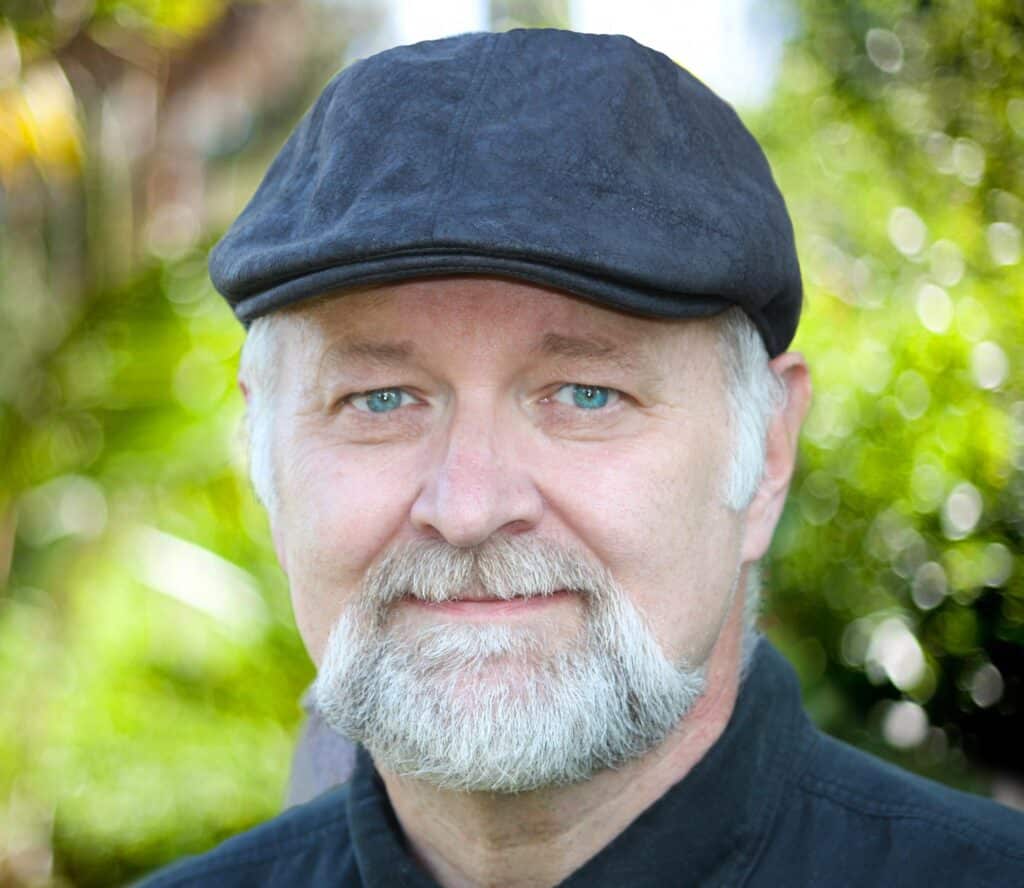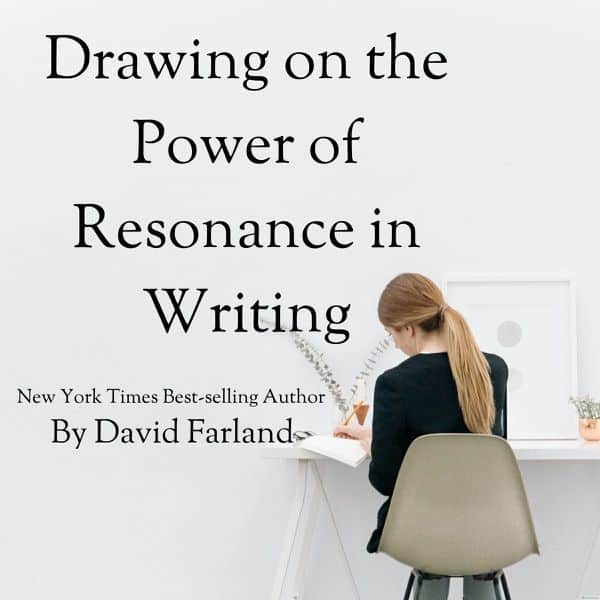David Farland told why need audience analysis on book writing & what is an adage
I’m sitting in a home office, at a desk, with my laptop open—but it’s not my home office, and it’s not my desk. There is a big bookcase full of fantasy books and keepsakes. But they are not my books or my keepsakes. The door is closed to keep out the cat—I’m allergic.
I’m pounding away at my keyboard, working, and David Farland is sitting in his recliner, right behind me pounding on his.
It’s like this every day for seven years. Or it was. More or less. (I actually started working at the kitchen table, and he upstairs). That’s a lot of hours to spend as someone’s personal assistant. You would think I’d have some major writing secrets of success to share with all of you from that time. I don’t. Why?
David Farland told why need audience analysis on book writing & what is an adage
Because David Farland was generous with all his “writing secrets.” He shared the same ones with everyone—personal assistant or not. (However . . . there is one thing I can add that I don’t think he told everyone. . . .)
He helped thousands strive for success in the writing industry.
I’m only one of those.
And while this certainly isn’t a comprehensive article, I wanted to share just five lessons I personally learned from him.
- Broaden and Deepen Your Story
- How to Avoid Writing the Annoying
- The Power of Resonance
- The Importance of Audience Analysis
- His Personal Adage
David Farland told why need audience analysis on book writing & what is an adage

1. Broaden and Deepen Your Story
One of the most helpful things Dave taught me, was to escalate a story by broadening and/or deepening it.
To broaden means to have what’s happening, affect more people and places.
So if I start a story with the protagonist trying to rescue his daughter, then later in the story, I escalate it so that not only does he need to rescue his daughter, but everyone in her school class. If I start a story with the protagonist needing to protect a farm, then later in the story, I escalate it so that she needs to protect her whole town.
To deepen means to have what’s happening, become more personal.
So if I start a story with a detective trying to find a murderer, then later in the story, I escalate it so that the murderer turns out to be her husband. If I start a story with the protagonist fighting the immoral greed of a corporation, then later in the story, I escalate it so that he needs to fight the immoral greed in his own heart.
While David Farland spoke of applying these concepts to conflict specifically, I also love using them to help with brainstorming stakes.
Stakes are potential consequences and should be able to fit into an “If . . . then . . .” statement. They are about what could happen. You can raise the stakes in any story by broadening or deepening what is at risk.
David Farland told why need audience analysis on book writing & what is an adage

Examples:
If Moana doesn’t return the Heart of Te Fiti, then her home will be destroyed. (Broadening).
If Frodo is the Ringbearer, then he could become corrupted by the Ring’s power. (Deepening)
David Farland told why need audience analysis on book writing & what is an adage
2. How to Avoid Writing the Annoying
On multiple occasions, David Farland compared writing a story to writing a song. The writer hits different “notes,” and there is an overall melody, an overall theme. But if the writer repeatedly hits the same exact note over and over and over and over . . . it can become annoying.
This is true of almost anything. The first time something happens, we may not think too much of it. It may be an inconvenience if we don’t like it, but it’s not that big of a deal. If the exact same thing keeps happening over and over and over again without any variation, we get annoyed.
Too much repetition without variation can make the most patient of us eventually want to tear our ears off.
As writers, we rarely want to genuinely annoy the audience. This is why we almost always want to avoid repeating the exact same thing.
With that said, there is a good reason to repeat some things with variation. . . .
David Farland told why need audience analysis on book writing & what is an adage
3. The Power of Resonance
Resonance is different than annoyance. Resonance comes from drawing upon what came before, without cloning it. We’ve all experienced resonating stories, even if we didn’t use that exact word to describe them.
Resonance can happen on a few different levels.
For one, a story may resonate with a particular audience because of a shared experience. For example, a story about owning a dog will resonate with those who have owned dogs.
A story may resonate with creative works that have gone before it. It may use similar settings or even similar words to tap into a particular tone or feeling.
Or a story may resonate within itself through motifs or even word choice.

To quote David Farland directly:
“There are literally hundreds of ways to create resonance—through voice, tone, characterization, imagery, setting, or simply referring to popular works, by bringing common experiences to life, and so on. . . . To the reader, a story that resonates powerfully may seem especially significant or rich—much more so than a tale that doesn’t resonate.”
I haven’t heard anyone talk about the power of resonance quite like Dave. So if you want to learn about it and how to incorporate it powerfully into your own stories, maybe pick up his book on it.
4. The Importance of Audience Analysis
Lately I’ve been missing Dave’s talks on audience analysis. Being able to properly analyze audiences is a critical skill to have, if you want to make it in the industry, but it’s not one I see many professionals talk about, let alone try to teach. You can write a wonderful story, but if it doesn’t suit your audience or can’t resonate with a wide audience, it will have a small reach.
Dave analyzed audiences regularly, and he was happy to share what he learned with others. One way he analyzed audiences was by age.
For example, he pointed out how children from 0 – 11 go through what is called a “discovery phase,” where the world around them constantly feels wondrous, because they are constantly encountering new things. This also means, as Dave pointed out, there are plenty of opportunities to laugh or feel terrified about each new experience. So children of those ages often prefer fantasy, science fiction, humor, or even horror. Those genres tend to outsell the others. This means writing a contemporary family drama for six-year-olds probably isn’t the greatest idea . . . at least not if your goal is to greatly impact six-year-olds.
Now I’m not saying there are never exceptions—there are. But those are just that, exceptions.
5. His Personal Adage
I want to end with something no one reading this probably knows. I feel pretty sure Dave didn’t even think it was important. It was just a normal part of what he said and did and how he lived professionally. And yet . . . strangely, over the years, this is something that has ended up sticking in my brain the most. (One of the most, at least.)
As you may imagine, like any job, there were plenty of times where I voiced or emphasized the unlikeliness of getting everything done, and getting it done on time. And honestly, there were times where I was right. But that’s not the point.
While another employer may get mad or at least upset by it, Dave would often simply reply, “All you can do, is all you can do.” It was one of his adages, and I’m not even sure if he knew that it was.
He didn’t see much benefit in stressing about the impossible. All you can do is everything you can do, and sometimes that’s not as much as you want, but that’s all you have, and that’s what you have to work with. We’re all human after all. Just do what you can and do your best with what you have. No need to have a temper tantrum or meltdown (at least not usually).
So next time you feel overly stressed, remember, “All you can do, is all you can do.”

There are loads of other things Dave taught people about—like the importance of transporting your reader or how stories need to be emotionally powerful to be successful or why submissions may get rejected.
But I would like to end by asking you, what are some lessons you’ve learned from David Farland? Let us know in the comments.
About September C. Fawkes:
Sometimes September C. Fawkes scares people with her enthusiasm for writing. She has worked in the fiction-writing industry for over ten years and has edited for both award-winning and best-selling authors, as well as beginning writers. She runs a writing tip blog at SeptemberCFawkes.com and offers an online writing course, The Triarchy Method of Story. When not editing and instructing, she’s penning her own stories. Some may say she needs to get a social life. It’d be easier if her fictional one wasn’t so interesting.









2 Responses
I really needed this today, especially “All you can do is all you can do.” For over 6 months I was writing every day, hitting my word count, planning my novel, and then my husband had a serious surgery and writing went out the window. All I could do was read and I read novel after novel to distract myself from the challenges we faced. Because of Dave and his teachings, I found myself identifying parts of KAV in the novels, the touch of backstory, and world building woven into the action. Because of Dave I suddenly realized why the story was so fast paced and engaging. Now the stress of life is passing and I can’t wait to get back to daily writing! Thanks, September
David taught me that not matter how important your writing is to you, your family and coping with life (like during a family tragedy) may need to take priority. Your writing will always be there for you and may even be a place of refuge when needed.